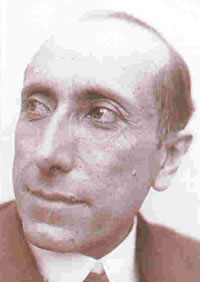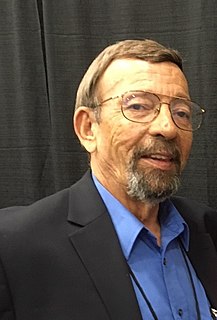A Quote by John Dryden
Criticism is now become mere hangman's work, and meddles only with the faults of authors ; nay, the critic is disgusted less with their absurdities than excellence ; and you cannot displease him more than in leaving him little room for his malice.
Related Quotes
Obviously, a man's judgement cannot be better than the information on which he has based it. Give him the truth and he may still go wrong when he has the chance to be right, but give him no news or present him only with distorted and incomplete data, with ignorant, sloppy or biased reporting, with propaganda and deliberate falsehoods, and you destroy his whole reasoning processes, and make him something less than a man.
love is thicker than forget more thinner than recall more seldom than a wave is wet more frequent than to fail it is most mad and moonly and less it shall unbe than all the sea which only is deeper than the sea love is less always than to win less never than alive less bigger than the least begin less littler than forgive it is most sane and sunly and more it cannot die than all the sky which only is higher than the sky
I am beginning to realize that "sanity" is no longer a value or an end in itself. The "sanity" of modern man is about as useful to him as the huge bulk and muscles of the dinosaur. If he were a little less sane, a little more doubtful, a little more aware of his absurdities and contradictions, perhaps there might be a possibility of his survival.
God's love never ceases. Never. Though we spurn him. Ignore him. Reject him. Despise him. Disobey him. He will not change. Our evil cannot diminish his love. Our goodness cannot increase it. Our faith does not earn it any more than our stupidity jeopardizes it. God doesn't love us less if we fail or more if we succeed. God's love never ceases.
The master in the art of living makes little distinction between his work and his play, his labor and his leisure, his mind and his body, his information and his recreation, his love and his religion. He hardly knows which is which. He simply pursues his vision of excellence at whatever he does, leaving others to decide whether he is working or playing. To him he's always doing both.
Any more questions?" I ask, poking him gently in the ribs. "Do you still love me any?" Eliot asks, putting his hand over mine. "A little." "A little?" he asks, pulling away from me. "A lot." "How much?" he asks. "More than chocolate chip cookies." "Mmm" he says, kissing my shoulder. "More than walking on the beach." Eliot kisses me on the neck. "More than . . ." I pause, turning to look at him. "More than?" he asks, kissing my lips. I turn toward him. "Anything.
Say of him what you please, but I know my child's failings. I do not love him because he is good, but because he is my little child. How should you know how dear he can be when you try to weigh his merits against his faults? When I must punish him he becomes all the more a part of my being. When I cause his tears to come my heart weeps with him. I alone have a right to blame and punish, for he only may chastise who loves.
Now, Bella suspected by this time that Mr. Rokesmith admired her. Whether the knowledge (for it was rather that than suspicion) caused her to incline to him a little more, or a little less, than she had done at first; whether it rendered her eager to find out more about him, because she sought to establish reason for her distrust, or because she sought to free him from it; was as yet dark to her own heart. But at most times he occupied a great amount of her attention.
Often nothing keeps the pupil on the move but his faith in his teacher, whose mastery is now beginning to dawn on him .... How far the pupil will go is not the concern of the teacher and master. Hardly has he shown him the right way when he must let him go on alone. There is only one thing more he can do to help him endure his loneliness: he turns him away from himself, from the Master, by exhorting him to go further than he himself has done, and to "climb on the shoulders of his teacher."
The religious fanatic who practices terrorism cannot be reasoned with, because there is nothing you can threaten him with, and no alternative you can offer him that is more palatable than his genuine belief that if he dies fighting you, he will be greatly rewarded in afterlife. Only swift and extreme force can stop him.







































